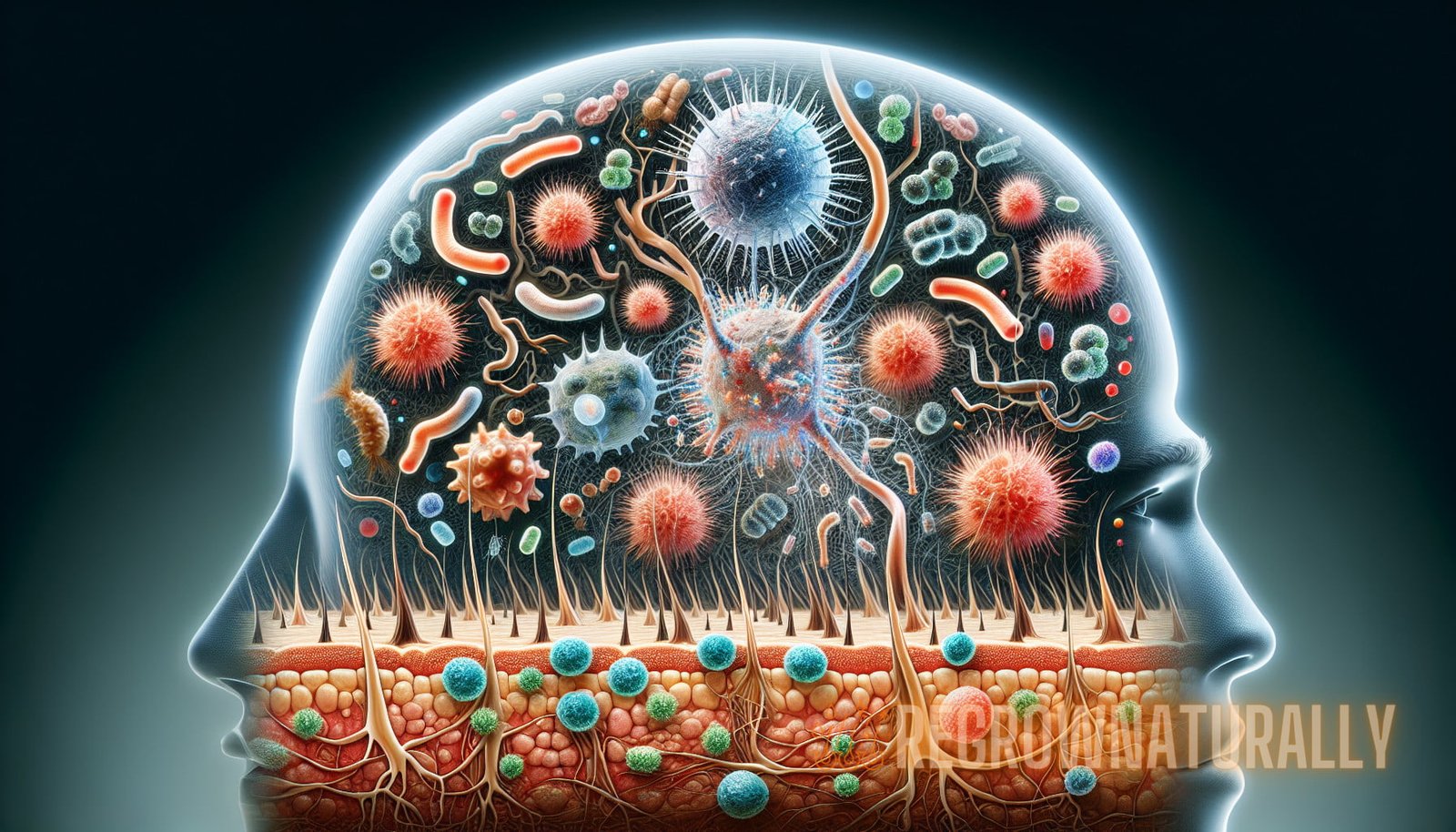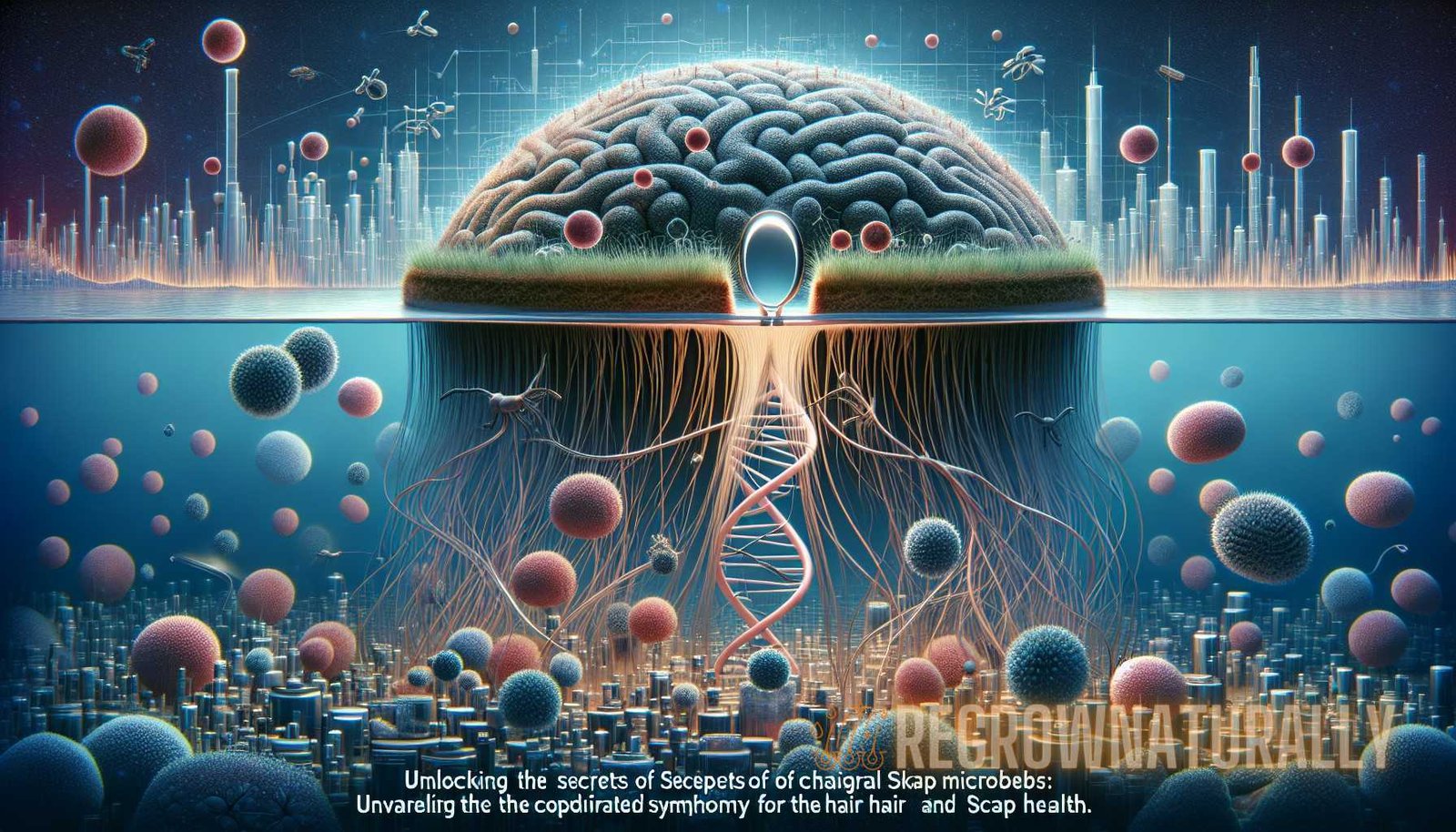The Symbiotic Relationship: Unveiling the Intricate Balance Between Scalp Microbiome and Health
When it comes to the health of our scalp, we often focus on external factors such as hair products and lifestyle practices. However, there is another crucial aspect that plays a significant role in scalp health – the scalp microbiome. The scalp microbiome is a complex ecosystem of microorganisms that reside on our scalp’s surface and play a vital role in maintaining its health and balance. In this article, we will delve into the fascinating world of the scalp microbiome, exploring its intricate relationship with overall scalp health.
Understanding the Scalp Microbiome
The scalp microbiome refers to the collection of microorganisms, including bacteria, fungi, viruses, and mites, that inhabit the scalp. These organisms live in symbiosis with our bodies, having a mutualistic relationship that benefits both parties involved. They help protect the scalp from harmful pathogens, maintain its pH balance, and contribute to hair health.
Researchers have found that the scalp microbiome is unique to each individual. It varies in terms of microbial composition and diversity based on factors such as genetics, age, diet, hygiene practices, and the environment. While certain microorganisms are typically found on the scalp, the exact composition and balance of these organisms differ from person to person.
The Importance of Balance
Just like any ecosystem, the scalp microbiome thrives when there is a delicate balance among its various inhabitants. This balance is crucial for maintaining scalp health and preventing scalp issues such as dandruff, itchiness, and inflammation. When this balance is disrupted, it can lead to an overgrowth of certain microorganisms or the presence of harmful pathogens, causing scalp problems to arise.
A study published in the Journal of Investigative Dermatology revealed that imbalances in the scalp microbiome can contribute to the development of conditions like seborrheic dermatitis and scalp psoriasis. These conditions are often characterized by an overgrowth of specific bacteria or fungi, leading to symptoms such as redness, flaking, and irritation.
To maintain a healthy scalp microbiome, it is essential to establish a balance of beneficial microorganisms and limit the growth of harmful ones. This can be achieved through a combination of proper scalp hygiene practices, a balanced diet, and the use of products that support a healthy microenvironment on the scalp.
The Role of Beneficial Microorganisms
Several studies have highlighted the role of beneficial microorganisms in maintaining scalp health. These microorganisms help in various ways:
- Protection against pathogens: Beneficial bacteria and fungi on the scalp create a protective barrier, preventing the growth of harmful microorganisms that can lead to infections and scalp issues. They do this by competing for resources and producing antimicrobial compounds that inhibit the growth of pathogens.
- Maintaining pH balance: The scalp has an optimal pH range that supports the growth of beneficial microorganisms while hindering the proliferation of harmful ones. Beneficial bacteria play a role in maintaining this balance, ensuring the scalp’s pH remains in its healthy range.
- Promoting hair health: Certain beneficial microorganisms help enhance the condition of the hair by contributing to its strength, shine, and growth. They also aid in the breakdown of sebum, the natural oil produced by the scalp, preventing it from clogging hair follicles and causing issues like dandruff.
By supporting the growth and balance of beneficial microorganisms on the scalp, we can positively influence scalp health and minimize the occurrence of common scalp problems.
The Impact of External Factors

While the scalp microbiome is influenced by internal factors such as genetics and overall health, external factors also play a significant role in shaping its composition and balance. These factors include:
- Hygiene practices: The frequency and method of scalp cleansing can impact the scalp microbiome. Excessive washing or using harsh chemicals can disrupt the balance, while infrequent cleansing can lead to the accumulation of dirt, sebum, and dead skin cells, creating a favorable environment for harmful microorganisms.
- Hair products: The use of certain hair products, particularly those containing harsh chemicals, can disrupt the scalp microbiome. Ingredients like sulfates and parabens can strip the scalp of its natural oils, disrupt its pH balance, and lead to an overgrowth of harmful microorganisms.
- Environment: The environment we live in also plays a role in shaping the scalp microbiome. Factors such as humidity, pollution, and exposure to UV radiation can influence the microbial composition on the scalp, potentially leading to imbalances.
It is important to be mindful of these external factors and make choices that support a healthy scalp microbiome. Opting for gentle, scalp-friendly hair products, practicing regular but gentle cleansing, and protecting the scalp from environmental aggressors can help maintain a balanced scalp microbiome.
Improving Scalp Microbiome Health
If you are interested in improving your scalp microbiome health, here are some steps you can take:
- Use gentle hair products: Look for hair products that are free from harsh chemicals, sulfates, and parabens. Opt for natural, nourishing ingredients that support a healthy scalp environment.
- Practice regular cleansing: Cleanse your scalp regularly to remove dirt, excess oil, and dead skin cells, without stripping it of its natural oils. Use a gentle shampoo specifically formulated for scalp health.
- Avoid overwashing: While regular cleansing is important, overwashing can disrupt the balance of the scalp microbiome. Aim for a frequency that suits your scalp type.
- Maintain a balanced diet: A healthy diet rich in vitamins, minerals, and antioxidants supports overall scalp health. Include foods like fruits, vegetables, whole grains, and lean proteins to nourish your scalp from within.
- Limit stress: Stress can have a negative impact on scalp health and disrupt the balance of the scalp microbiome. Incorporate stress-relieving practices into your routine, such as meditation, yoga, or exercise.
- Protect your scalp: Shield your scalp from environmental aggressors by wearing a hat or using a sunscreen spray specifically designed for the scalp.
By incorporating these practices into your scalp care routine, you can help create an environment that supports a healthy scalp microbiome and minimizes the risk of scalp issues.
The Future of Scalp Microbiome Research
As scientists continue to explore the intricate relationship between the scalp microbiome and overall scalp health, further advancements are expected in this field. Ongoing research aims to identify the specific microorganisms that play a role in scalp health and the factors that influence their growth and balance.
Understanding the scalp microbiome on a deeper level can pave the way for innovative scalp care solutions tailored to individual needs. Personalized scalp treatments that focus on restoring and maintaining a healthy scalp microbiome have the potential to revolutionize scalp health and address specific scalp concerns more effectively.
In conclusion, the scalp microbiome is a fascinating ecosystem that has a significant impact on overall scalp health. By understanding its importance and taking steps to support its balance, we can promote scalp health, prevent common scalp issues, and enjoy luscious, healthy hair.
Sources:
- An article available at https://regrownaturally.fun/scalp-health/the-secret-link-how-the-scalp-microbiome-affects-hair-health-and-well-being
- An article available at https://regrownaturally.fun/scalp-health/discover-effective-natural-remedies-for-scalp-relief-say-goodbye-to-dandruff-dryness-and-more
- “Structure and Functions of the Human Skin Microbiome” – Wikipedia


